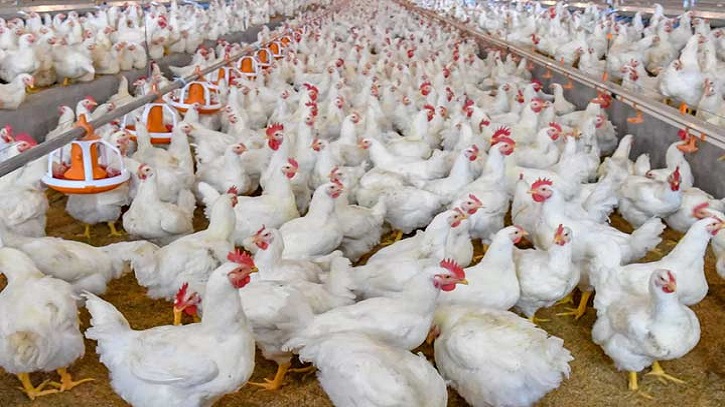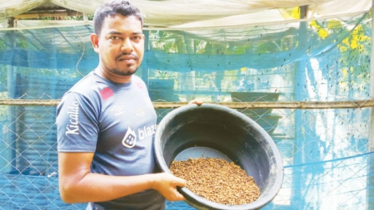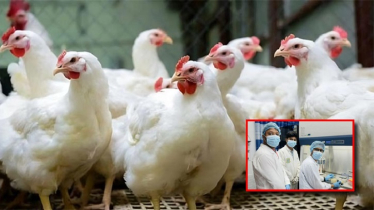
DHAKA: The Bangladesh Poultry Association (BPA) has issued a stern warning that marginalized farmers across the country will begin suspending their farms and production from November 1 if the government fails to meet a seven-point list of demands within the next 15 days.
The demands, announced at a press conference at the Economic Reporters Forum (ERF) auditorium in Paltan on Saturday, October 18, aim to break the influence of corporate syndicates that the BPA says are arbitrarily increasing the prices of chicken feed, chicks, medicines, and vaccines.
BPA President Suman Hawladar stated, “If the government does not accept our seven-point demands, marginalized farmers will be forced to close their farms, and the production of eggs and chicken will be suspended. Our blockade will continue until the government meets our demands.”
Mr. Hawladar emphasized that marginalized farmers contribute about 80% of the country's egg and chicken production, yet they are excluded from decision-making. He alleged that prices are determined by a few powerful companies, which has burdened farmers and forced thousands out of business in recent years.
Highlighting the price disparity, he noted, “In our neighboring country, India, an egg sells for five Taka and chicken for 80-90 Taka. But here, they are sold for 10 Taka and 150-165 Taka, respectively. The inability to sell at lower prices is due to the vested interests of a few companies and a lack of government oversight.”
According to a 2023 study by the Trade and Tariff Commission, chicken feed is being sold in Bangladesh at an overcharged rate of BDT 15 to 20 per kilogram. This inflates the production cost of a market-ready chicken to BDT 150-165, forcing small-scale farmers to sell at a loss—between BDT 130 and BDT 140.
The BPA noted that while the government intervenes swiftly when egg or chicken prices rise, there is no action when the price of feed or chicks increases.
The seven demands presented by BPA General Secretary Elias Khondkar include: The government must break the corporate syndicate and set the prices of feed, chicks, medicines, and vaccines. Establish an immediate, fair, and transparent market management system free from corporate influence. Include representatives of marginalized farmers in policy-making levels. Implement a regular audit system for the feed, chick, and medicine markets. Determine a fair price for eggs and chicken by adding a 10% profit margin to the production cost. Provide incentives, collateral-free loans, and subsidies to affected farmers. Take action against corrupt and corporate-leaning officials.





